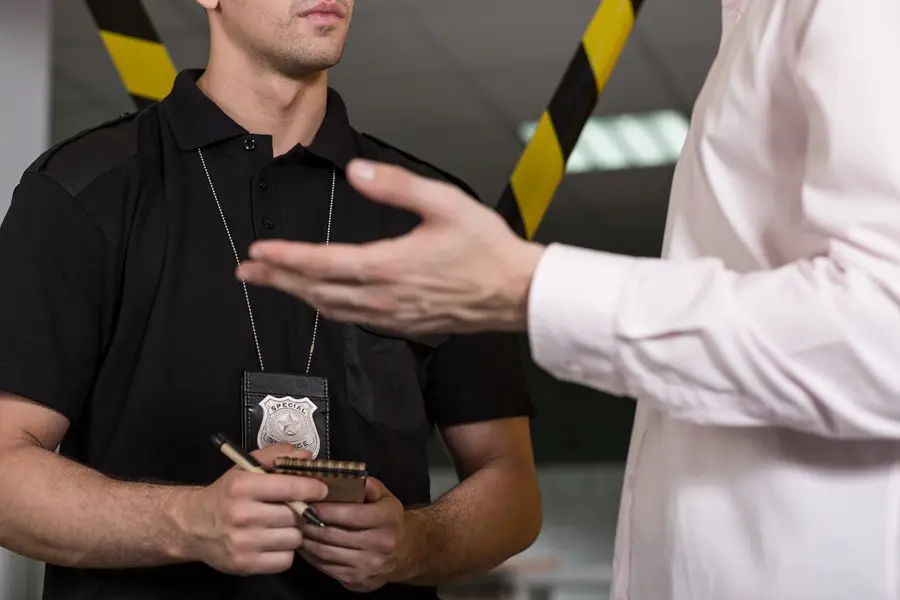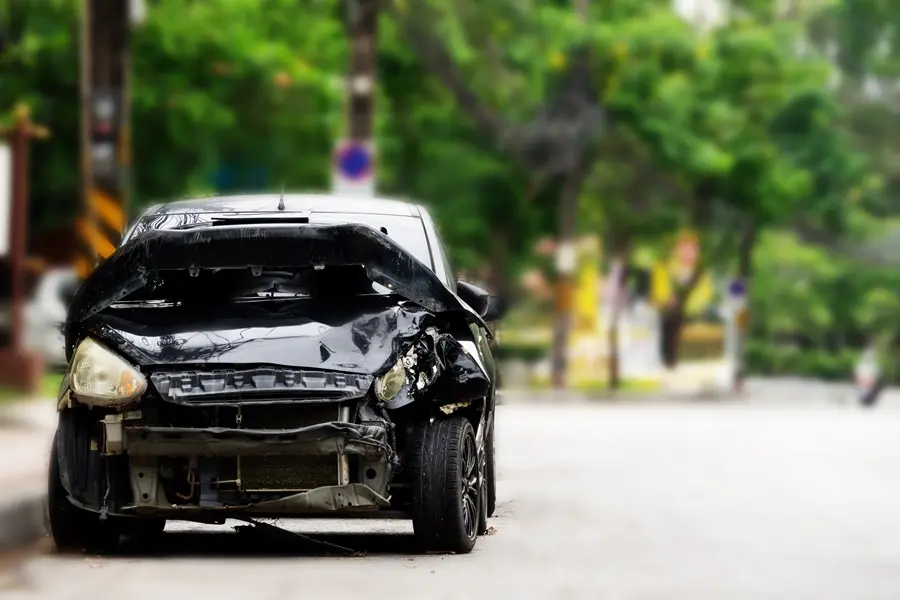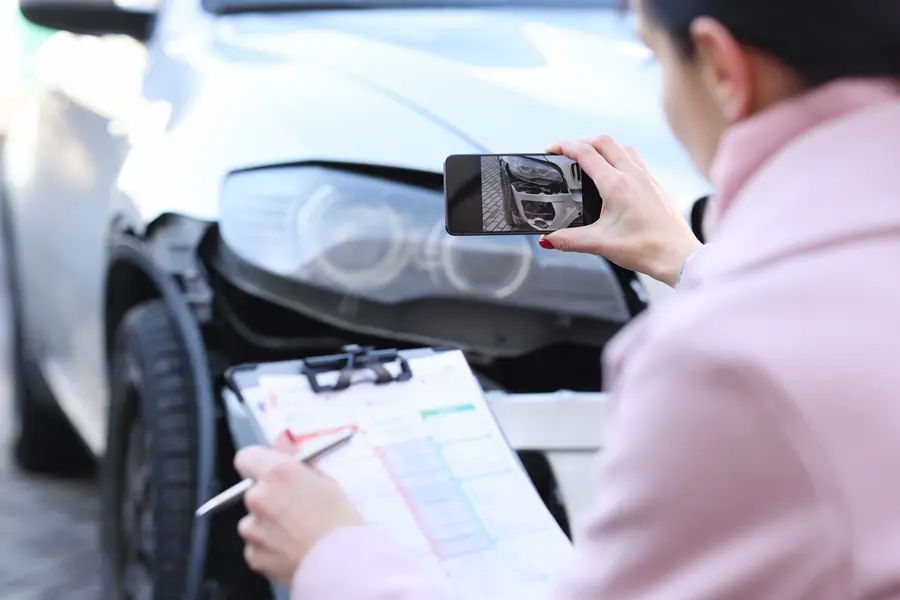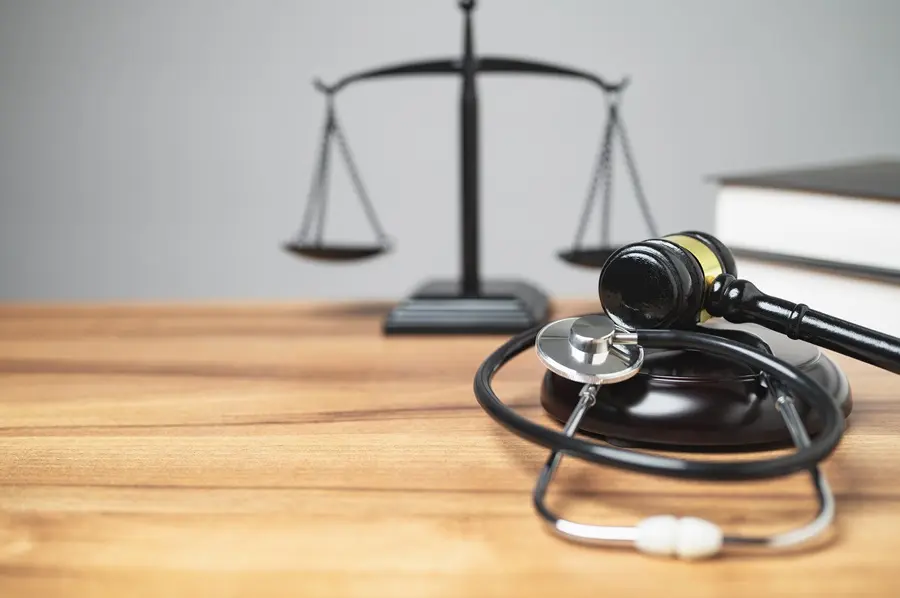Table of Contents
Car accidents can be a whirlwind of confusion, pain, and frustration. Amidst the chaos, a police report serves as an official record of the incident, a vital document for insurance claims and potential legal battles. But what happens if this report is riddled with errors? An inaccurate police report can jeopardize your claim, leaving you with less compensation than you deserve.
The experienced auto accident lawyers at Brown, Bass & Jeter are familiar with the intricacies of car accident claims and the critical role police reports play. We’ve created this guide to help you figure out what to do if the report written after your accident is inaccurate.
Components of a Police Report

According to official NHTSA statistics, over two million people were injured in auto accidents in the United States in 2022 alone. In the aftermath of a car crash, the accuracy and completeness of the subsequent police report becomes crucial, as it creates an official record of the incident.
A police report isn’t just a simple form — it’s a detailed narrative and analysis of the accident. As such, it plays a pivotal role in insurance claims, legal proceedings, and even traffic safety research.
There isn’t a single federal law that comprehensively regulates police reports in the U.S. Instead, regulation is primarily handled at the state and local levels.
In Mississippi, the public’s right to access government records, including police reports, is outlined in Title 25 of the Mississippi Code, also known as the Open Records Act. This legislation establishes the legal framework for individuals to request and obtain these important documents, with some exceptions.
Understanding what information is included in these reports is crucial for individuals seeking to access them. With that in mind, let’s break down the key components of a police report.
Identification Information
A police report records the basic data of all parties involved in an accident, including their full names, dates of birth, addresses, phone numbers, driver’s license numbers, and insurance details. Responding officers will take down the information of all drivers and vehicle owners, as well as any witnesses on the scene.
Vehicle Information
Vehicle information goes beyond just the license plate number. It includes:
- Vehicle details: The make, model, year, color, VIN (Vehicle Identification Number), and registration details of all vehicles involved.
- Damage description: A thorough account of the damage to each vehicle, including location, severity, and photos, if available.
- Pre-accident condition: A description of the vehicle’s general condition and whether any mechanical issues might have contributed to the accident.
This information is critical, as it provides the basis for future insurance claims or legal action.
Accident Scene Details

Next, the responding officer will paint a picture of the environment where the accident happened, noting such details as:
- Location: The precise address or intersection, including landmarks, if relevant.
- Date and time: This helps establish a clear timeline of events.
- Weather conditions: Rain, snow, fog, ice, or clear skies can all be factors in an auto accident.
- Road conditions: Wet asphalt, ice, potholes, and construction zones are all potential hazards.
- Traffic controls: Presence and functionality of traffic lights, stop signs, yield signs, etc.
Some reports may also include an accident diagram, which is a visual representation of how the vehicles collided, their initial positions, and their final resting points.
Witness Statements
Recorded statements can be highly valuable for the ensuing investigation and legal processes. Law enforcement personnel will typically seek statements from drivers and their passengers (with the caveat that they may be biased), as well as individuals who weren’t involved in the accident but observed it.
Conflicting statements are a possible complication of car crash investigations. If witnesses disagree on certain details, officers can note them and look into them further.
Officer’s Observations
A trained eye can spot many important details of an accident, including:
- Vehicle damage: This helps determine the force of impact and correlate witness statements.
- Injuries: While officers will note visible injuries, the police report shouldn’t replace a comprehensive medical evaluation.
- Physical evidence: Skid marks, debris, and other physical evidence can help authorities reconstruct the accident.
- Driver behavior: The officer may note signs of intoxication, distraction, or other possible factors.
Details like these could influence the outcome of any insurance claims or lawsuits sought in the aftermath of the crash.
Officer’s Opinion (If Applicable)
In some cases, the responding officer will indicate the party they believe caused the accident based on their observations and the evidence. If traffic laws were broken before or during the incident, the officer may issue citations.
It’s important to note that the opinions of law enforcement personnel are not legally binding in any way — insurance companies and courts may have an entirely different interpretation.
Why Police Reports Matter
The information found in a police report can be used in multiple ways. For instance, it may influence:
- Insurance claims: Insurance adjusters will use the official police report to assess liability and calculate compensation.
- Legal proceedings: Attorneys frequently call on police reports as evidence in court to argue for or against fault.
- Traffic safety: Data from police reports can be analyzed to identify dangerous intersections or common causes of accidents.
All in all, the police report stemming from a car accident is a vital document that contains much compelling evidence that could impact the outcome of the case.

Injured in a Car Accident? We’re Here to Help
If you’ve been hurt in a collision that wasn’t your fault, the capable attorneys at Brown, Bass & Jeter will fight for your rights, regardless of what the police report says.
Types of Police Report Errors and Their Danger
Police officers are human and are susceptible to errors just like anyone else. While most officers strive for accuracy, mistakes can and do happen, even with the best intentions. The consequences of these errors can be far-reaching, potentially impacting an accident victim’s ability to receive fair compensation.
Factual Mistakes
Factual errors are the most common and straightforward mistakes. They can include:
- Misspelled names: Misspelling a party’s name might seem trivial, but it can create confusion and delays in the claims process.
- Incorrect dates or times: A false time stamp can alter the timeline of events and lead to questions about who was where and when.
- Vehicle description errors: Misidentified license plate numbers, vehicle colors, or makes and models can make it harder to identify the responsible party.
- Confused location details: A misplaced address or intersection can lead to disputes over jurisdiction or applicable traffic laws.
- Inaccurate witness information: Misheard names, wrong phone numbers, or omitted comments can devalue crucial witness testimony.
You may notice incorrect details ranging from minor to major in any part of the report, so make it a point to review it carefully.
Errors of Omission
Sometimes, it’s not what’s in the report but what isn’t that causes problems. Keep an eye out for:
- Missing witness statements: If a witness provides valuable information but it’s not recorded, it’s as if they were never there.
- Unmentioned road hazards: A wide variety of conditions can contribute to accidents, but if no one knows about them, it might seem like the driver was solely at fault.
- Overlooked vehicle damage: Failing to document all damage can lead to disputes regarding the extent of the accident’s impact and the cost of repairs.
- Lack of medical information: If injuries aren’t thoroughly documented at the scene, it can be harder to prove their connection to the accident later on.
If you believe that some crucial piece of information is missing from the report, it’s worth discussing your concerns with a qualified attorney.
Errors of Opinion
While police officers are trained observers, their conclusions aren’t infallible. Errors of opinion can encompass:
- Incorrect fault determination: An officer might misinterpret the evidence or witness statements, leading to an incorrect assignment of blame.
- Bias or preconceived notions: Unconscious biases can sometimes influence an officer’s perception of events, especially if factors like age, race, or gender are involved.
- Failure to consider all factors: An officer might overlook contributing factors like road design, weather conditions, or the actions of other drivers.
Law enforcement personnel need to be attentive, logical, and impartial when drafting accident reports to prevent mistakes like these from shaping the outcome of the case.
What Could Happen If You Don’t Correct Police Report Errors
If not addressed promptly and properly, a mistake-filled police accident report could set in motion a chain of events that significantly undermines your compensation claim.
Reduced Insurance Settlements
Insurers often rely heavily on police reports when determining fault and calculating payouts. Errors can lead to lower settlement offers or even denials.
Increased Insurance Rates
In some cases, an inaccurate report can pave the way for points on your license or higher premiums, even if you weren’t at fault.
Weakened Legal Position
If your case goes to court, the police report will be a key piece of evidence. The opposing party could exploit false or missing information to cast doubt on your version of events.
How to Fix Police Report Mistakes

Discovering errors in your accident police report, whether it’s for a car, truck, or motorcycle accident, can be disheartening, but it’s not the end of the road. By taking swift and decisive action, you can often correct these inaccuracies and protect your right to fair compensation.
Navigating the aftermath of a car accident requires an understanding of both how to read a police report and how to address potential mistakes to ensure a fair outcome for your case. Consider the following steps to fix errors in your report.
1. Obtain Your Copy
Get a copy of the official police report as soon as possible. Most police departments allow you to request a copy of an accident report online, in person, or by mail. There may be a small fee associated with procuring a copy.
2. Review the Report with a Critical Eye
Examine every detail meticulously, looking for any discrepancies, omissions, or statements that don’t align with your recollection of the events. Pay particular attention to dates, times, vehicle descriptions, witness statements, and the officer’s conclusions.
3. Gather Evidence to Build Your Case
Collect any evidence that could help support your version of events, such as:
- Photos and videos: Visual evidence of the accident scene, vehicle damage, and visible injuries can be indispensable
- Witness statements: If you have contact information for witnesses who weren’t interviewed by the police, ask them for a written statement detailing what they saw.
- Medical records: If you sought medical attention, your medical records can help establish the extent of your injuries and link them to the accident.
Documentation like repair estimates and service receipts can also provide proof of the cost of fixing your vehicle.
4. Contact the Reporting Officer (If Appropriate)
If the errors are relatively minor (like typos or incorrect addresses), try contacting the officer who filed the report. Politely explain the mistakes you found, providing supporting evidence as needed. They may be willing to amend the report directly.
5. Request a Formal Amendment
If the errors are more substantial or the officer is unresponsive, you’ll need to submit a formal request in writing. Make sure to include:
- Your name, contact information, and case number.
- A clear and concise description of the errors in the report.
- Supporting evidence for your claims (photos, witness statements, etc.).
- A request for a revised or supplemental report to be filed.
Address your amendment request to the police department handling your case or its records division.
6. File a Supplemental Report (If Allowed)
Some jurisdictions allow you to file your own supplemental report. This gives you the opportunity to detail your perspective on the accident and offer a counterpoint to the potentially inaccurate information in the official report.
7. Consult an Attorney
If you’re facing resistance from the police department or the errors in the report are threatening your insurance claim or potential lawsuit, don’t hesitate to seek legal counsel.
A qualified car accident attorney can benefit you in the following ways:
- Guiding you through the process of correcting the police reports.
- Advocating on your behalf with the police department and insurance companies.
- Helping you gather and present evidence to strengthen your claim.
- Pursuing legal action if necessary.
Remember, an inaccurate police report isn’t the final word. By being proactive and seeking trustworthy legal guidance, you can rectify the situation and protect your claim for compensation.
Don’t Let an Inaccurate Police Report Derail Your Claim

An inaccurate accident police report can cast a shadow over your car accident claim. It could mislead insurance adjusters, undermine your case in court, and ultimately leave you shouldering burdens that rightfully belong to someone else.
If you or a loved one has been involved in a car accident, don’t let a flawed police report decide your future. Our compassionate legal team is here to protect your rights and help you overcome the obstacles standing in the way of fair and adequate compensation.
Contact the experienced personal injury attorneys at Brown, Bass & Jeter today to schedule a free consultation. We can assess your situation, uncover the truth, and secure the compensation you rightfully deserve.



